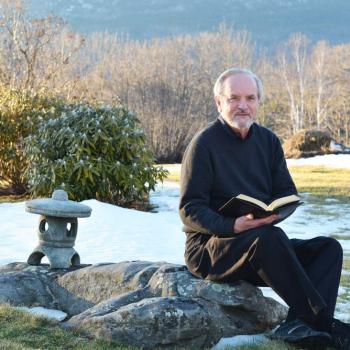 Last year I moved into a home with large built-in bookcases in the den. This was a treat as my several hundred books were previously scattered on small bookcases around the house and I now could store them in one place. It also gave me good reason to organize my books by category and author.
Last year I moved into a home with large built-in bookcases in the den. This was a treat as my several hundred books were previously scattered on small bookcases around the house and I now could store them in one place. It also gave me good reason to organize my books by category and author.
I was not surprised to find the most books I had by any one author were from Thomas Moore. A former monk who lived in a Catholic religious order for 12 years, Moore had a blockbuster hit with one of his first books, Care of the Soul, which was published in 1992. What you may not know is that he followed up that book with 15 others.
Most of Moore’s books represent different riffs on a single vital theme, the place of the soul in our everyday lives. He has written about the soul and love, the soul and work, the soul and every other facet of our lives, including sex, religion and illness, and the critical role it plays in our overall sense of happiness and well-being.
Moore is a writer’s writer in that every chapter, every paragraph, every sentence is packed with meaning. There’s no skimming a Thomas Moore book. Page after page, he digs deeper than any writer I know to come up with the rich truths and compelling mysteries that are buried within each of us, then expounds upon them beautifully.
As you can probably tell I’m a huge Moore fan, his writings literally do whisper to and stir my soul. I believe he is our greatest living spirituality writer, and in a world where The Secret tops the self-help book charts, his great body of work gets nowhere near the attention it deserves.
Since my words can not do his words justice, I’ve pulled out passages from several of my favorite texts below—but consider this merely a few drops from a vast sea of compelling work. I highly recommend you pick up one of his books, on whichever topic interests you most, and dig in. It will be time very well spent.
I take magic seriously, as a source of effectiveness in a world that is more mysterious than our scientific achievements imply. A word, a gesture, or an image may be more powerful than a reasoned argument, a ritual or ceremony more beneficial for human continuity than any machine or technical development. Becoming a person of deeply grounded and rich imagination may be more desirable then being healthy, politically savvy or well-informed. (The Re-Enchantment of Everyday Living, 1996)
Live simply, but be complicated…simplifying the externals allows us to cultivate a rich inner and outer life. A cluttered existence may keep us busy, but busyness doesn’t mean that we are engaged in what we are doing. Usually, just the opposite…a complicated person can simplify life and in that simplicity find a sharp articulation of values. (Original Self, 2000)
If we define our spirituality only in positive and glowing terms, it will become sentimental, and then it is of no use. To be spiritual is not just to pray and meditate but also to be involved in the struggles of marriage, work, and raising children; in social responsibility and in the effort to make a just and peaceful world. (The Soul’s Religion, 2002)
In sex, an inner life of strong emotions and vivid fantasies meets with a real person to create a moment of exceptional intensity when life is full and reason is dim. The soul craves such excursions from literal reality, and it is no mystery that sex is so compelling and enticing. (The Soul of Sex, 1998)
Go with developments, rather than against them. If you feel lost, be lost in ways that suit you and make you feel like a participant in your life. If you feel empty, empty out your life where it needs it. If you feel sad, let sadness be your dominant feeling. Being in tune with your deep mood is a way of clarifying yourself. Speak for it. Show it Honor it. (Dark Nights of The Soul, 2004)
Today many people have a banker’s idea of love. If you don’t get back as much as you put in, you are being cheated. You need to find someone new to be a friend or lover. But in the context of the Gospels, agape is different. This love doesn’t depend on the other’s actions. There are no guarantees. The loving is not about you at all. It isn’t exactly selfless, because the self is fully involved. It is a self defined by engagement with others. (Writing in the Sand, 2009)
















